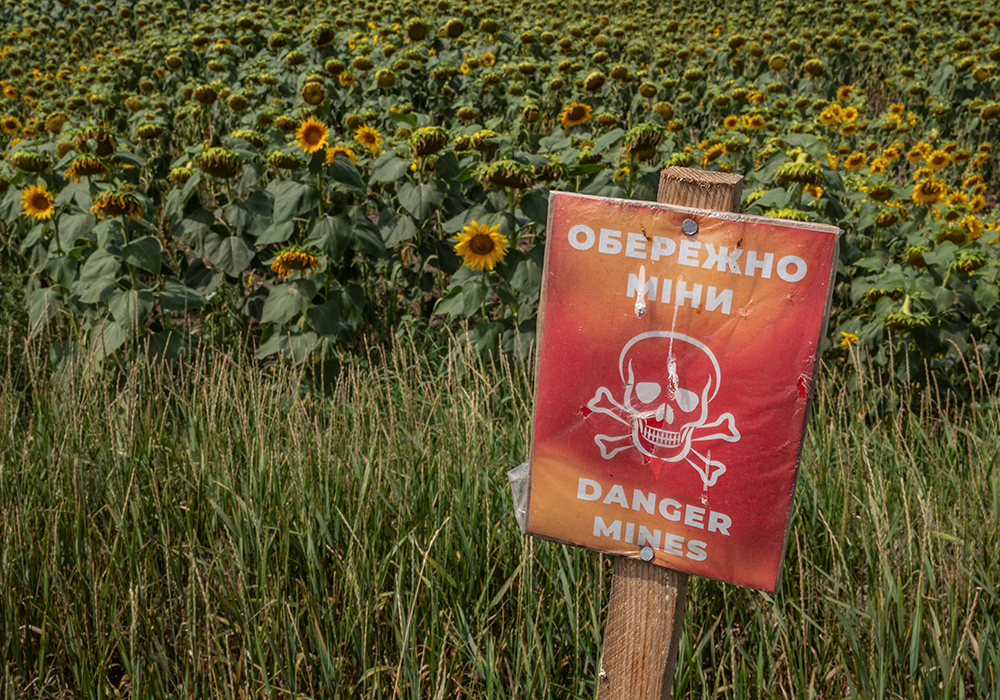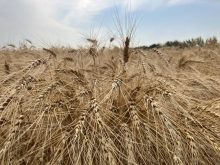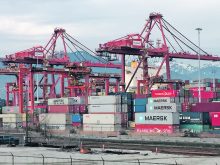The war in Ukraine dropped a bomb on snack food manufacturers, says an industry official.
“The supply chain was already fragile,” said Christine Cochran, president of SNAC International, which represents various stakeholders in the industry.
“What the war in Ukraine did was take a fragile system and further degrade it.”
Read Also

VIDEO: Case IH reveals new Optum tractor at Agritechnica 2025
Case IH reveals its new Optum tractor at Agritechnica 2025.
Ukraine accounts for nearly half of world sunflower oil exports. The country’s 2021-22 exports were down 14 percent versus the previous year.
Ukraine’s 2022 sunflower production is expected to fall by more than 30 percent, according to UkrAgroConsult.
“Sunflower is incredibly important to snack manufacturers because it is neutral in taste, it is low in saturated fat and it is non-GMO,” Cochran told delegates attending the Ag Outlook Forum presented by AgriPulse and the Agricultural Business Council of Kansas City.
Food manufacturers like to boast that the ingredient is non-allergenic and non-GMO.
“It’s a gift. It’s on the packaging of every single product that it’s in.”
That is problematic when suddenly they have to switch to another type of vegetable oil due to a supply shortage of sunflower oil.
Manufacturers had to create new packaging in order to adjust their government-mandated food ingredient labels.
Prior to the war, that process took about two weeks. It is now taking 20 weeks due to the same supply chain issues affecting many industries.
“When you want to pivot your ingredients, but you have labelling requirements, it is very, very difficult to do,” said Cochran.
The non-GMO and allergen-free claims are not part of the food ingredient labels. They are a separate process involving different third parties, which means manufacturers are having to co-ordinate with multiple organizations.
“We have been very much affected by what’s going on with the Ukrainian war,” she said.
Moderator Kip Tom, former U.S. ambassador to the United Nations Agencies for Food and Agriculture, told Cochran that he only has one concern.
“Just make sure the supply chain for Cheetos stays open,” he said.
“That’s all I care about.”
Arlan Suderman, chief commodities economist with StoneX, said there could be some relief on the horizon for snack manufacturers.
Farmers in Ukraine are going to want to grow high-value crops with lower input costs because fertilizer prices are sky-high, and availability is a concern because they have typically sourced fertilizer from Belarus and Russia.
That means they will likely plant more wheat and oilseeds and less corn.
“That should help with the sunflower oil situation,” he said.
His assessment is at odds with UkrAgroConsult’s forecast calling for a 30 percent decline in production.
Grain storage is also becoming a worrisome issue in Ukraine. Yale’s Humanitarian Research Lab just released a report showing that at least 75 of Ukraine’s grain storage facilities have been damaged or destroyed.
The report is based on satellite imagery of more than 340 grain storage facilities in the country.
An estimated 3.07 million tonnes of the country’s 58 million tonnes of storage is out of commission. Another 6.24 million tonnes is under Russian control.
Add them together and 16 percent of Ukraine’s storage capacity has been rendered unusable.
That could lead to a crisis of availability, Nathaniel Raymond, executive director of the lab, said during a recent webinar organized by the U.S. Department of State’s Foreign Press Center.
“If Ukrainian farmers cannot have enough storage to be able to plant their winter wheat, we could look at food shortages that have global implications,” he said.
Raymond said the implications are particularly dire for the World Food Programme, which typically sources 40 percent of its supply from Ukraine.
“The amount of damaged and destroyed grain that could be affected by the facilities we’ve imaged in this report is equal to the total reported amount of grain that has left Ukraine under the UN-negotiated grain deal in the past few weeks, just to give you a sense of scale,” he said.
Contact sean.pratt@producer.com
















